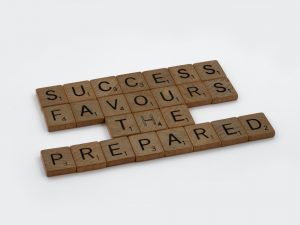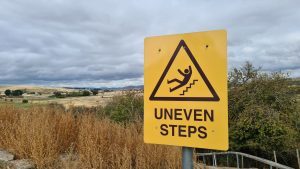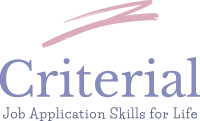 Your Key Selection Criteria based interview
Your Key Selection Criteria based interview
I was pondering my newest key selection criteria blog and not exactly feeling like writing a lot, so I cheated.
This post will outline the background information I give to anyone engaging me to assist with interview preparation.
This is what I ask people to read and understand before we discuss their actual interview.
Enjoy, hope it is useful, I’m going to watch the footy.
Perusal Time
You will be told if you have perusal time before the interview. This is usually in a small room adjacent to the interview.
You will generally be supplied the questions and/or a scenario that will be asked in interview.
The perusal time is an opportunity to collect your thoughts. It also allows you to work out how you want to address what is being asked.
Because the time is limited, you want to be prepared before you get to the interview. This includes being well rested, being as settled as you can by taking however long you need beforehand. Sit relax, use the bathroom etc so you are ready to focus on the interview.
If you want to make notes you will usually be supplied paper and pen, or take your own, so make the level of notes that will help you answer the questions. For you this could be a few dot points or a few paragraphs.
Make sure you look at all the questions paying attention to identifying the key selection criteria, and don’t spend too much of the time on just one or two.
Having your examples prepared ahead of time will certainly help in using your perusal time effectively. I’ll address that more shortly.
The Panel
They should advise you who is on the panel and what their role is. Usually panels comprise three people:
- The chair – usually the hiring manager
- A subject matter expert – someone who can test what an applicant claims regards technical skills
- An independent person – who is usually keeping an eye on cultural fit for the team/department.
 Different panels obviously sometimes have more but not usually less people.
Different panels obviously sometimes have more but not usually less people.
You don’t need to address any of them differently depending on their roles. They all listen to different things as you talk.
Key Selection Criteria Examples
Having your examples prepared ahead of time is one of the best strategies you can have for doing well in an interview based around key selection criteria.
If you have no seen it, I have a online course dedicated to understanding and cataloguing your career here.
In an interview situation you can be fairly sure, you will get a question on communication or teamwork. Depending on the role you may also be asked some subject/role specific questions.
Types of Questions
Questions you will be asked can be broadly divided into two types:
- Tell us an example of when you have …
- Scenario asking you to describe what you would do, based on your experience.
 For any interview you can also expect at least one of the questions to be ‘harder’. This is designed to separate out the strong applicants from the rest.
For any interview you can also expect at least one of the questions to be ‘harder’. This is designed to separate out the strong applicants from the rest.
To prepare your key selection criteria examples, knowing what you have done and what those situations involved helps. When you see the questions, you can think through what you have done and use an example that fits best.
As I’ve said previously, selection is competitive so you need your best examples. These will be the things in your career you are most proud of, were complex, difficult or you’ve been recognised for.
Examples
Thinking through these examples, most will have the teamwork or communication or project or subject expertise situations you’ll be asked. Because you were there, know what the situation involved, what you did to handle things and what the outcomes were, you can apply those examples to the questions as you need.
For example, if you’re applying for a project management role you will have project examples from your experience that will have involved:
- Changes in scope
- Working with teams – likely diverse (multi-disciplinary) teams
- Assigning work and managing deadlines
- Communication in written and oral form doing project documentation and briefing
- Managing stakeholders
- Using relationships with vendors or service providers
Competency Areas
These are all the competency areas you are likely to be asked to respond to so by knowing one project example – you can actually answer numerous questions. By knowing all your examples, you can pick and chose which one is the best fit for the interview situation.
This avoids trying to think of questions you will be asked. Trying to do that is difficult because there are infinite questions you could be asked. As an interviewer myself I like to make sure the questions will show me good from average candidates so I try to be a little unpredictable.
You should still think about the interview, the role and anything that you might be asked, because it is part of preparing for that interview, but having your examples all known ahead of time you are already well prepared.
What does it mean to think about the questions you might be asked? Aside of the core competency type questions, you might be asked to develop a plan or say what you would be if you were appointed to the role and had to show a plan of how you would manage a team or a situation that is actually occurring. By doing your research on the team, the role, the organisation can give you some insight into the types of challenges/situations you may be asked about.
The Interview Itself
Panel members will usually take turns introducing themselves, explain the interview process, maybe talk about the role and help you settle in. Don’t be afraid to briefly introduce yourself, especially if they don’t give you the opportunity. It is a communication skill and shows you can be in a situation and manage it.
Some interviews will ask you the questions, some if you have had perusal time will just ask you to work through your answers. Usually they will be taking notes or have a scribe so don’t be concerned if interviewers are from time to time looking down. Move eye contact to the next person and engage them as it will help them be engaged in the process, not just listening and writing.
Recovering from a stumble
 If you stumble on an answer, collect your thoughts and start again. That doesn’t reflect badly, it shows composure and a skill of managing a situation. Remember the panel are not just listening to what you’re saying, they are observing you too.
If you stumble on an answer, collect your thoughts and start again. That doesn’t reflect badly, it shows composure and a skill of managing a situation. Remember the panel are not just listening to what you’re saying, they are observing you too.
Body Language
If you have an answer or an example that involved stress or conflict make sure your body language correlates with your answer. Claiming you managed a situation well and without conflict, when your body language says you are still affected and stressed by it, shows a disparity between what you said and how you said it.
Time
If you are managing your own time, don’t run over time and don’t spend 75% of the interview on 25% of the questions. It shows an inability to manage time and once again will show conflict between what you say you can do and what you do. That will be noticed.
Questions for the Panel
If you are given the opportunity to ask questions at the end, there is no obligation to but it is worthwhile. You don’t want to be asking about the organisation or the role at the end of the interview, if there are things you wanted to know ask them beforehand.
If you have some insightful questions it is once again an opportunity to show how you are. The line supervisor for the role will usually be on the panel so perhaps ask them about their management style, how they operate or what the experience, background or priorities are. Find out about them as a person (as much as you can in a few minutes). If you don’t like being micromanaged, and they say their approach is to manage every employee every day for what they are doing and how they do it, the role may not actually be for you!
The interview should be as much about you finding out about the role as it is them finding out about you as you may end up in the role for a number of months or years so spend the time making sure it is for you. Asking some insightful questions once again also shows them who you are.
Feel free to ask about timelines for the process and the procedural aspects if they don’t volunteer them.
Strategies for Answering Questions
The interview process is used to determine who the best applicant is. So apart from having the strongest examples you also want to be the person who answers the questions the best. What does that mean? In any interview, every interviewee will usually “answer the question”. The best interviewees will answer the question and add some extra thinking or dimension or aspect to their answer. You obviously want to be that person.
Improve your Answers
So how do you do that? For every question you are looking at, if you have perusal time, think of what your answer is and then make sure you think about what you can value add or what extra answer you can give.
That may be linking your answer to a broader challenge or context the business unit or organisation is facing, bringing in additional skills that are not core to the role that shows you can be a more capable employee, showing something from your experience that is not just directly relevant to the question but that shows you go above and beyond to do your work. As you look at the questions, think to yourself what is the extra part to your response that shows you think more than just the question asked.
Types of Answers
The sorts of questions the panel should be asking should have a degree of complexity. They should also be written in such a way that there is potential for an interviewee to give:
- A basic answer,
- A good answer with some extra details above and beyond the obvious, or,
- An outstanding answer with particularly deep insight.
 You obviously want to give the outstanding answer. So, when you’re reading the questions (if you are provided them) look for the simplest answer and then think how can you add to it. If it is a question on consumer and carer engagement skills and records you could discuss:
You obviously want to give the outstanding answer. So, when you’re reading the questions (if you are provided them) look for the simplest answer and then think how can you add to it. If it is a question on consumer and carer engagement skills and records you could discuss:
- Basic answer – simply that – you can answer the question by relating your experience in delivery consumer and carer services and how that links to quality outcomes for the consumer.
- Good answer – do that and link your experience to record keeping and teaching students. Identify how important it is to ensure records and results tracking to ensure KPI’s and effectiveness can be measured, and, fed back in as service improvements.
- Outstanding answer – give a good answer and link your experience and continuous improvement to the organisation, values, strategic plan and delivery of government health objectives.
Answer the question then make sure you say a bit more.
Values
Being selected is as much about being the right person as having the best skills. Make sure you know their values and use those words in your responses. I’ll go into that more in the email tomorrow addressing the key selection criteria specifically.
Annual Report
It never hurts to glance over the annual report and/or strategic plan for the department or the unit. See if there are any specific goals/targets/projects or priorities they have. If you get the opportunity to mention them it shows research which shows you care.
 Scribes
Scribes
The use of scribes is becoming increasingly more common. If they are used their role will be explained at the interview. Their role is simply to take notes for the panel to refer to later. They also record discussions and deliberations for the purpose of the selection report. They are not involved in decision making. A scribe is advantageous for you because the panel can be more interactive; spend less time taking notes.
What’s next for your Key Selection Criteria interview?
With all that on the table, have a think about your interview and do your research/preparation. Find out about the organisation and role if you can. Don’t be afraid to research media to see what they are in the news for (good, bad or otherwise). Reach out to people on LinkedIn. If they have a contact center call and ask to speak to someone in the work unit, be as creative as you like. Collate your examples and think about how you can apply them for the competency areas for this role.
Once you have done all of that, we can book a call. In the call we will spend time discussing your key selection criteria examples, the role and how you can approach the interview. Usually takes about an hour – longer than the interview itself. That might sound a lot but you’ll be surprised how much there is to discuss to prepare and how quickly it goes.
Share this post
